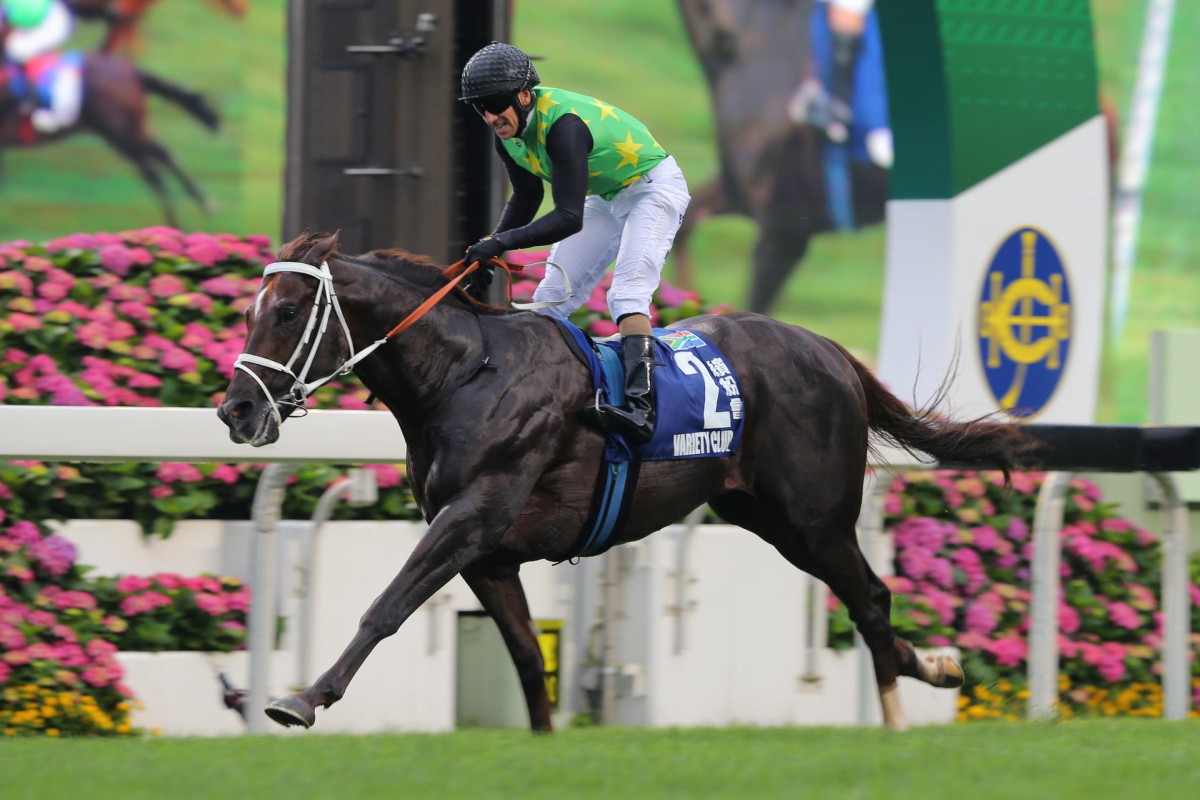On the back of Variety Club displaying for the world to see, yet again, the quality of South Africa's racehorses, doubtless this week's Asian Racing Conference will have earnest discussions about how to achieve change to the onerous quarantine regulations that keep them at home.
What kind of clout the ARC might have in this area is open to question - as we have seen with attempts to ease Australian quarantine regulations, governments are rarely moved by the wishes of a bunch of racing administrators or wealthy breeders pushing for change in an area with national and international implications beyond horse racing.
So, South African horses will probably still have to travel via Alpha Centauri to compete for the immediate future. But the catalyst for change could come in a few years, when it is understood that South Africa plans to bid for the 2024 Olympic Games.
Bids are usually decided seven years ahead, so the process would begin in 2015 or 2016 and part of any bid, presumably, would need to be some progress on the movement of horses in and out of the country for equestrian events.
That's when some change could occur because you have governments, not just sporting bodies, talking to governments and other international authorities and suddenly the parties are all speaking the same language.
If change does come, it will have implications for the normal run of things in Hong Kong, as freer movement of South African horses would put them firmly on the radar to be a big part of the horse population here.
The economic realities of Europe and Australasia are that the types of raced horses pursued by Hong Kong buyers have largely become too expensive, and yearling sales . . . well, they are the lion's den indeed. There is an opening for a new, cheaper market to open up and the talent that top South African horses display, when they do get overseas to compete, suggests it is the one.
Importantly, they share the traits that make Australasian-bred horses the dominant force in Hong Kong - speed, precocity and firm track talent - but will be much cheaper, at least in the early days until market forces again run wild.
Sad state of griffin ranks bodes ill for their futures
Over the past half a decade or so, griffin racing has declined and gradually moved later and later in the programme – even their grand final, the Juvenile Sprint Trophy, has disappeared – but if the point was to give horses more time and improve these races as nurseries of future stars, then the jury is out and staying out.
The three griffin events – and there are only three more planned this season – have been the worst run in a decade. They have been non-events for betting and featured moderate performances, even from the winners.
That is not to say that some of these young horses might not progress to be worthwhile later in life, particularly Bullish Smart, who is improving his figures with racing and appeals as having something to offer next season as his distances increase. Time and maturity can bring serious improvement, so we wouldn’t pension them off to riding school just yet.

But, in the past, these events started as early as November and produced precocious, talented animals who went on to Group One success and were headed somewhere good right from the start – Charming City, Jeune King Prawn, The Duke, Scintillation, Good Ba Ba, Admiration, Inspiration – the list goes on to, most recently, Amber Sky. That is not evident this term.
And, take Good Ba Ba out of that list above and the other regular ingredient is the preponderance of southern hemisphere horses. The two-year-olds traditionally dominate griffin races and have more often been those to go on later in life, but where are they now?
Oddly, we have yet to see one southern hemisphere runner, and the conclusion is that we have seen, instead, three fields of horses who may turn out to be longer-distance horses – we hope so for their owners’ sakes – battling it out unimpressively over unsuitable distances.
Moreira escapes ‘big one’ with aggressive move
Further to our item about the stewards and varying penalties last week, chief stipe Kim Kelly has provided a lengthy list of careless riding penalties, over a wide range of jockeys and for a wide range of reasons, which were outside the stated schedule over the past two seasons. So we take his point that there were plenty of precedents for Joao Moreira to receive a penalty not in line with the usual.
While on the subject of the stewards’ room, we have previously stated that we felt Moreira was hard done by when suspended for three days at Happy Valley in February on Golden Addiction, and we don’t always agree with guilty findings by the stewards’ panel.
But we have also noted the “invisible statistic” that isn’t recorded but plays as big a role as actual suspensions in the jockeys’ championship – those occasions when a jockey, any jockey, might have been penalised but wasn’t – and Moreira was on the right side of a big one on Sunday.
Given the seven meetings meted out to Eddy Lai Wai-ming recently for improper riding, Moreira could have received something similar in almost identical circumstances in the Champions Mile on Able Friend. He made an aggressive move to force his will on Gordon Lord Byron and shift him from the three path to the two path.
There is nothing in the rules that says a jockey must move in when there is a vacant slot under him (coincidentally, Moreira had kept a vacant path inside him on Tour de Force earlier and made things hard for some of his rivals) and the Brazilian could easily have wound up heavily penalised, with his championship hopes over, but he was reprimanded instead.

















